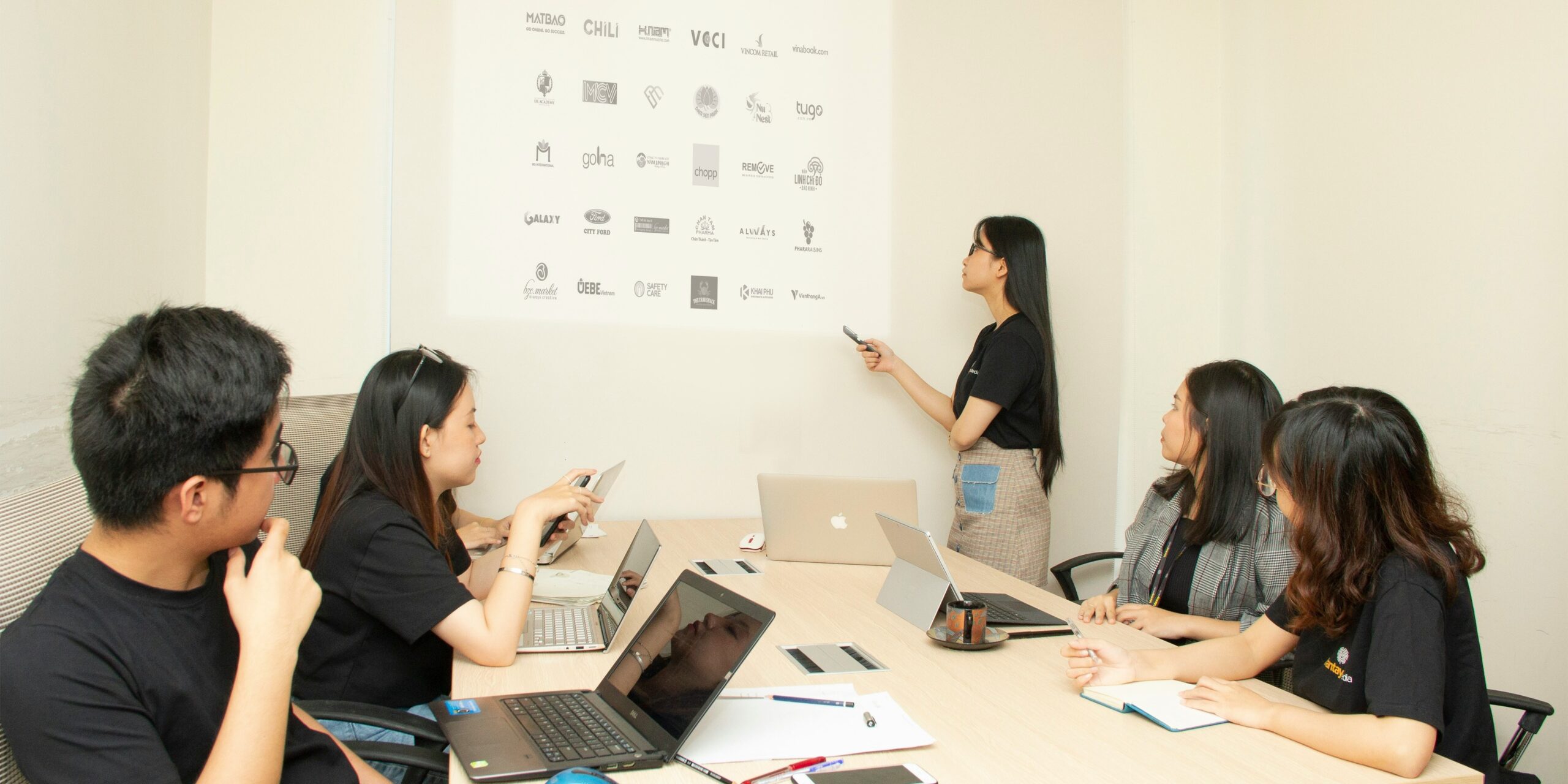What is an Onboarding Facilitator?
When it comes to employee onboarding, one key role that can make a significant impact is that of an onboarding facilitator. As a hiring manager with learning and development responsibilities, finding and hiring the right onboarding facilitator for your company’s specific training needs is crucial. But what exactly does an onboarding facilitator do?
An onboarding facilitator is a professional who specializes in guiding and supporting new hires through the onboarding process. They play a critical role in ensuring that employees have a smooth transition into their new roles, understand the company’s culture and values, and receive the necessary training and resources to succeed in their positions.
Here are some key tasks and responsibilities of an onboarding facilitator:
- Developing onboarding programs: An onboarding facilitator creates and designs onboarding programs tailored to the specific needs of the company and its employees. They collaborate with various stakeholders to gather information, identify training requirements, and develop engaging training materials.
- Conducting orientation sessions: An onboarding facilitator leads orientation sessions for new hires, providing them with an in-depth introduction to the company, its policies, procedures, and the expectations for their roles. They ensure that new employees have a clear understanding of their job responsibilities and set them up for success from day one.
- Coordinating training activities: Onboarding facilitators coordinate and schedule various training activities, including classroom sessions, virtual training, workshops, and mentorship programs. They ensure that all training materials and resources are readily available and that employees receive the necessary training to excel in their roles.
- Providing ongoing support: Throughout the onboarding process, an onboarding facilitator serves as a point of contact for new hires, offering ongoing support, answering questions, and addressing any concerns or challenges that may arise. They act as a mentor and advocate, helping employees navigate their initial period of adjustment and fostering a positive onboarding experience.
By having an onboarding facilitator in place, you can streamline your company’s onboarding process and ensure that new hires are set up for success. With their expertise in designing effective onboarding programs and providing ongoing support, onboarding facilitators can contribute to higher employee engagement, productivity, and retention rates.
Why is Onboarding Important?
As a hiring manager with learning and development responsibilities, you understand the importance of a smooth and effective onboarding process for new employees. Onboarding plays a crucial role in setting the stage for their success and long-term engagement within your organization. Here’s why onboarding is so important:
- Increased Employee Engagement: Effective onboarding helps new hires feel welcomed, valued, and connected to the organization. It sets the tone for a positive employee experience, which leads to higher levels of engagement. Engaged employees are more likely to be committed to their work, stay with the company longer, and contribute to its growth and success.
- Faster Time to Productivity: When new employees receive proper onboarding, they understand their roles and responsibilities, get familiar with company processes, and receive the necessary training. This enables them to become productive in their roles more quickly, reducing the time it takes for them to start making meaningful contributions to the organization.
- Better Retention Rates: A well-structured onboarding program shows new hires that the organization is invested in their success. This positively impacts employee retention rates by reducing early turnover. Studies have shown that employees who go through a structured onboarding program are 58% more likely to stay with the organization after three years.
- Consistent Communication of Company Culture and Values: Onboarding provides an opportunity to communicate the company’s culture, values, and expectations to new hires. It helps them understand what is expected of them and how they can align themselves with the organization’s vision and mission. This ensures that new employees understand and embrace the company’s culture from the very beginning.
- Enhanced Customer Satisfaction: A well-trained and engaged workforce, achieved through effective onboarding, can lead to improved customer satisfaction. When employees have a clear understanding of their roles and are equipped with the necessary knowledge and skills, they can provide better service to customers, resulting in positive experiences and increased loyalty.
Qualities of a Good Onboarding Facilitator
When it comes to onboarding new employees, having a skilled and experienced onboarding facilitator can make all the difference. An effective onboarding facilitator ensures that new hires have a smooth transition into the company, feel supported, and are set up for long-term success. Here are some key qualities to look for when selecting an onboarding facilitator:
- Strong Communication Skills: A good onboarding facilitator is someone who can clearly and effectively communicate information to new employees. They should be able to explain complex processes and procedures in a simple and easy-to-understand manner. Excellent communication skills will help to establish trust and build a positive relationship between the facilitator and the new employee.
- Empathy and Patience: Starting a new job can be overwhelming for new employees. A good onboarding facilitator understands this and approaches the onboarding process with empathy and patience. They should be able to listen to the concerns and questions of new hires and provide reassurance and support as needed. By creating a welcoming and supportive environment, the onboarding facilitator helps new employees feel comfortable and valued.
- Knowledge of Company Culture: A good onboarding facilitator should have a deep understanding of the company’s culture, values, and goals. This knowledge allows them to effectively communicate and reinforce these aspects during the onboarding process. By aligning the new employee’s understanding of the company culture with the expectations of the organization, the facilitator helps to promote a sense of belonging and cohesion.
- Organizational and Planning Skills: Onboarding involves multiple tasks and activities, such as paperwork, orientation sessions, and training sessions. A good onboarding facilitator possesses strong organizational and planning skills to ensure that everything runs smoothly and efficiently. By having a well-structured and organized onboarding program, the facilitator sets a positive tone for the new employee’s experience from the very beginning.
- Flexibility and Adaptability: The onboarding process can vary depending on the needs and preferences of the new employee. A good onboarding facilitator is flexible and adaptable, willing to tailor the onboarding experience to meet the individual needs of each new hire. By providing personalized support and guidance, the facilitator helps to foster a sense of individualized attention and care.
Finding an Onboarding Facilitator in Washington DC
When it comes to finding an onboarding facilitator in Washington DC, there are several factors to consider to ensure that you hire the right professional for your training needs. The onboarding process plays a crucial role in the success of new hires, and having a skilled facilitator can make all the difference in creating a smooth and effective onboarding experience. Here are some tips to help you find the perfect onboarding facilitator in Washington DC:
- Define Your Needs: Before you begin your search, clearly define your specific onboarding requirements. Consider factors such as the size of your organization, the nature of your industry, and any unique challenges that your new employees may face. This will help you identify the qualities and skills you are looking for in an onboarding facilitator.
- Relevant Experience: Look for an onboarding facilitator who has experience working in your industry or with similar organizations. They should have a deep understanding of the onboarding process and be able to tailor their approach to meet your company’s specific needs. A facilitator with relevant experience will be better equipped to effectively communicate important information and help new hires acclimate to your company culture.
- Communication and Empathy: An effective onboarding facilitator should possess excellent communication skills. They should be able to clearly convey information, answer questions, and address any concerns that new employees may have. In addition, a facilitator who demonstrates empathy and patience can help create a supportive environment where new hires feel comfortable asking for help or clarification.
- Organizational and Planning Skills: Onboarding involves coordinating various aspects, such as scheduling sessions, preparing materials, and tracking progress. Look for a facilitator who possesses strong organizational and planning skills. They should be detail-oriented, able to manage timelines efficiently, and ensure that all necessary resources are available for a seamless onboarding experience.
Remember, flexibility and adaptability are also essential qualities for an onboarding facilitator. They should be able to adapt their approach to meet the individual needs of each new hire and be open to feedback and adjustments to continuously improve the onboarding process.
How to Choose the Right Onboarding Facilitator
When it comes to finding the perfect onboarding facilitator for your company in Washington DC, there are several factors to consider. The onboarding process plays a crucial role in the success and retention of new employees, so it’s essential to choose a facilitator who can create a positive and engaging experience. Here are some tips to help you make the right choice:
Define Specific Onboarding Requirements
Before you begin your search, take the time to define your specific onboarding requirements. Consider the goals, objectives, and unique needs of your organization. Do you need someone who specializes in a particular industry? Are there specific skills or knowledge that the facilitator should possess? Clarifying these requirements will help you find a professional who aligns with your company’s vision and values.
Look for Relevant Experience in the Industry
Experience in the industry is an important factor to consider when choosing an onboarding facilitator. A facilitator with a background in your industry will have a better understanding of the challenges and nuances that new hires may face. They will be able to provide relevant examples and insights, making the onboarding process more relatable and effective.
Emphasize Communication and Empathy Skills
Effective communication and empathy are key qualities of a good onboarding facilitator. Look for someone who can connect with new hires on a personal level and create a supportive and inclusive environment. The facilitator should be able to listen actively, ask questions, and provide clear and concise information. Their role is to guide and support new employees during their transition, so strong communication and empathy skills are essential.
Highlight Organizational and Planning Skills
A successful onboarding process requires careful organization and planning. Look for a facilitator who demonstrates strong organizational skills and attention to detail. They should be able to develop a comprehensive onboarding plan, create a timeline, and coordinate with various stakeholders. A well-organized facilitator will ensure that each step of the onboarding process is executed smoothly and efficiently.
Emphasize the Importance of Flexibility and Adaptability
Flexibility and adaptability are crucial traits for an onboarding facilitator. They should be able to adjust their approach to meet the needs of different individuals and adapt to unexpected changes. Each new hire is unique, and the facilitator should be able to modify their strategies and techniques accordingly. Look for someone who can think on their feet and problem-solve in real-time.
Conclusion
Finding the right onboarding facilitator in Washington DC is crucial for ensuring a smooth and effective onboarding experience for new hires. By defining specific onboarding requirements, looking for relevant industry experience, emphasizing communication and empathy skills, highlighting organizational and planning skills, and prioritizing flexibility and adaptability, you can find the perfect facilitator.
A good onboarding facilitator will create a positive and engaging experience for new employees, helping them feel welcomed and supported as they transition into their new roles. They will guide them through the onboarding process, providing the necessary information and resources to help them succeed.
Remember, the onboarding facilitator plays a vital role in setting the tone for the employee’s entire journey with the company. By choosing the right facilitator, you can ensure that your new hires have a seamless onboarding experience, leading to increased productivity, engagement, and retention.
So, take the time to carefully consider your onboarding facilitator options in Washington DC. By following these tips and prioritizing the qualities discussed in this article, you’ll be well on your way to finding the ideal facilitator for your organization.
Frequently Asked Questions
Q: What are the qualities of a good onboarding facilitator?
A: A good onboarding facilitator should have relevant industry experience, strong communication and empathy skills, organizational and planning skills, as well as flexibility and adaptability.
Q: How do I find an onboarding facilitator in Washington DC?
A: To find an onboarding facilitator in Washington DC, define your specific onboarding requirements, look for someone with relevant industry experience, emphasize communication and empathy skills, highlight organizational and planning skills, and prioritize flexibility and adaptability.
Q: How can I ensure a smooth onboarding experience for new hires in Washington DC?
A: To ensure a smooth onboarding experience in Washington DC, choose an onboarding facilitator who can create a positive and engaging experience. Define specific onboarding requirements, look for relevant industry experience, emphasize communication and empathy skills, highlight organizational and planning skills, and prioritize flexibility and adaptability.




